Taiwan remains one of my favourite travel destinations in the world — and for good reason. From its breathtaking natural landscapes and rich cultural traditions to its world-famous street food, a trip to Taiwan is always a feast for the senses. Personally, my experience was even more rewarding because, as a Mandarin speaker, I could easily communicate with locals during my travels.
That said, you don’t need to be fluent in Mandarin to enjoy your trip. In major cities like Taipei, English is commonly used at tourist hotspots, transport hubs, and hotels, making it easy for travellers to get around. Still, knowing a few simple Mandarin phrases can go a long way. It not only helps when ordering food or asking for directions but also shows respect for the local culture and makes interactions with locals warmer and more genuine.
With that in mind, here are 15 useful Mandarin phrases every traveller should know before visiting Taiwan!
Also read: 15 Easy Korean Words & Phrases Every K-Drama Fan Should Know!
The common greetings
1. Saying hello for the first time – ni hao 你好
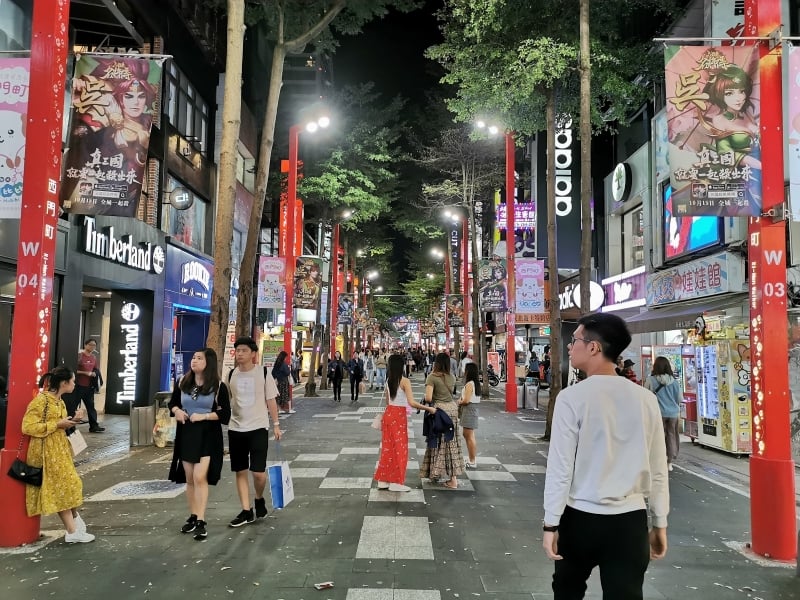
Ni hao is probably the most common phrase that non-Mandarin speakers know. Most guides that teach basic Mandarin list ni hao as the go-to phrase for greeting someone. It’s actually not completely correct.
While it’s perfectly fine to use ni hao to greet someone you’re meeting for the first time, it’s actually quite weird to use it to say hi to someone you already know. Basically, it roughly means “I hope you’re well” or “how do you do?” when translated. If someone came up to me and said ni hao, my first thought would be that he/she is trying to sell me something.
2. Subsequent greetings
Instead of ni hao, a better way to greet someone (especially if you’ve already met them before), is to use greetings associated with the time of day. There are many ways to do that, but here’s the simplest way:
In the morning, say zao 早 (drag it a bit, like how you would say “morning” to someone); Xia wu hao 下午好 is how you greet someone in the afternoon; and in the evenings, simply say wan shang hao 晚上好!
If that’s too much to remember, just use “hi” or “hello”! Or if you really want to go it the Taiwanese way, “ha-llo”!
Trivia: Mandarin doesn’t have alphabets, only characters. One tiny difference can change both the meaning and pronunciation. For example, the word niao (鸟) means “bird” but the word wu (乌) means “dark”. Can you spot the difference?
3. Thank you – xie xie 谢谢
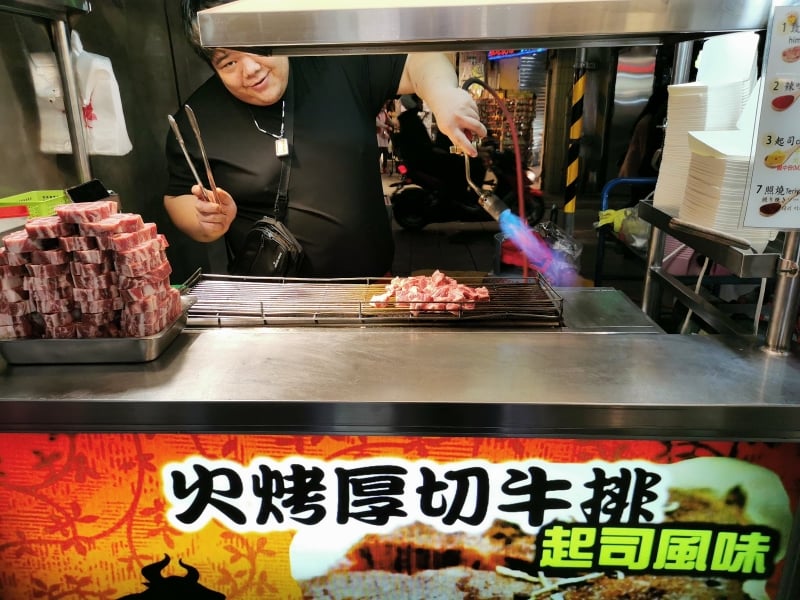
People in Taiwan are extremely polite so you’ll likely be hearing this phrase quite a lot, especially when you’re buying food at the night market. When in Taiwan, make sure to always say thanks to someone if they’ve done something for you or you’ll come across as a very rude person!
4. Excuse me – bu hao yi si 不好意思
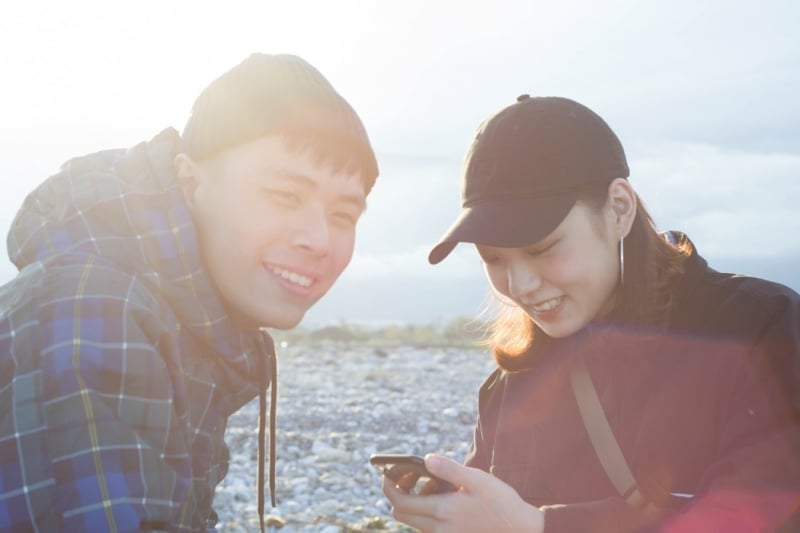
Note that “excuse me” in this context is usually reserved for when you require help from someone or if you want to apologise for something. Please do not go up to a food cart vendor who is already looking at you and say bu hao yi si before you order. You can, but it would be super weird.
Ordering food
5. Do you have an English menu? – you ying wen cai dan ma 有英文菜单吗?
Most eateries provide English translation and English menus by default, especially in Taipei. However, in case you ever run into a situation where you can’t find an English menu, use the above sentence to politely ask for one.
6. Do you have… – you mei you…? 有没有—?
Sometimes, you may already know what you want and you’d rather be able to order quickly. In this case, just use the above sentence to ask if they have whatever it is you want. Although, it’s best to also find out in advance the Chinese pronunciation of the item you’re looking for!
7. I want this/that – wo yao zhe ge/na ge 我要这个/那个
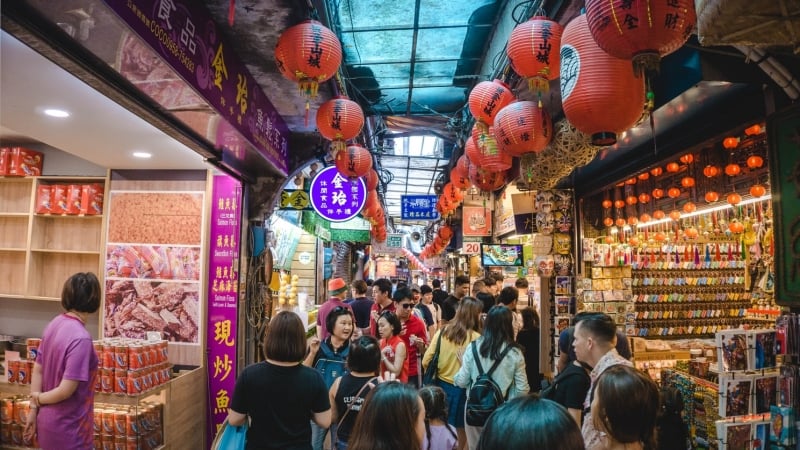
In the night markets, there usually isn’t a menu so you’ll probably have to rely on pointing to pick out what you want. Instead of pointing silently and freaking out the vendor, use the above Mandarin phrases to emphasise your point when buying stuff at night markets in Taiwan.
8. What is this? – zhe shi shen me? 这是什么?
Sometimes, you may find something peculiar that you want to try but you’re not too sure what it is. Simply point to it and ask zhe shi shen me. Cue amusing game of charades to find out the type of meat you’re eating!
9. How much? – duo shao qian? 多少钱?
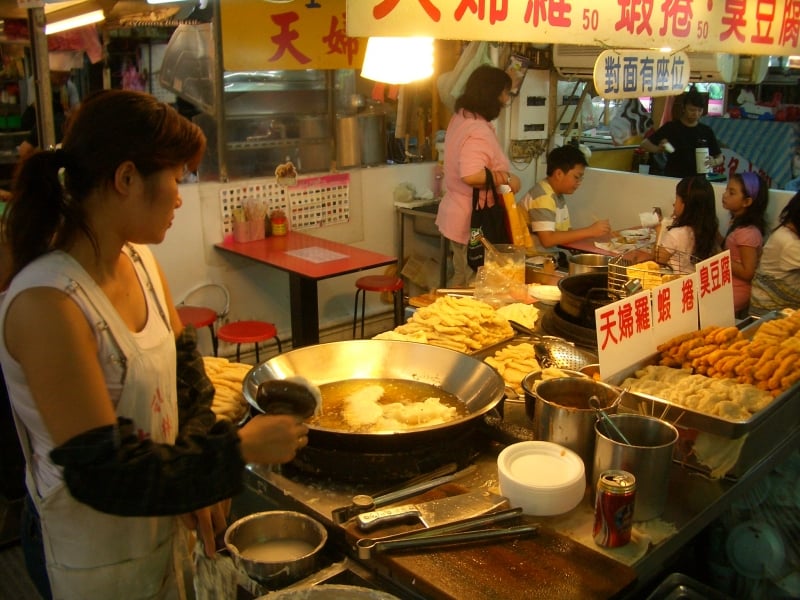
Image credit: Christopher
Ah, the all-important question! From experience, most eateries will display their prices prominently. But if you’re unsure, just ask, and then reluctantly part with your money and silently reflect on how much you’ve spent on food in Taiwan.
In a restaurant, simply say jie zhang 结账, which means “I want to pay the bill”. You could use duo shao qian but it will be quite out of place since you should already know the price of the food you ordered.
10. Is it spicy? – la ma? 辣吗?
Just in case some of you are super sensitive to spicy food. A word of caution, make sure you’re pointing at the food as you’re asking this question because the same pronunciation (different characters) can also mean “hot mama”! Ah, the beauty of Mandarin phrases in Taiwan!
11. Customising your bubble tea order
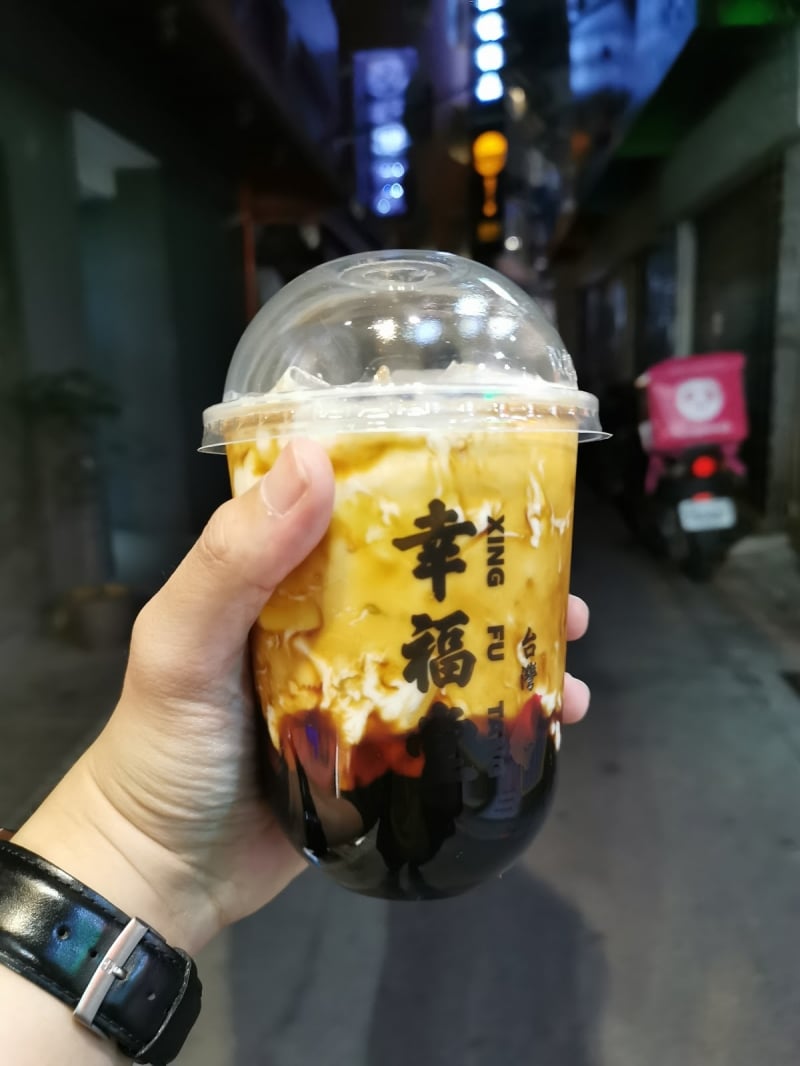
Another important aspect of Taiwan is bubble tea. After all, it’s where the global bubble tea craze started! Of course, if you’re the type to customise your bubble tea, take note of the phrases below:
Quan tang 全糖 means full sugar; shao tang 少糖 means less sugar, and ban tang 半糖 means half the usual amount. For ice, you can ask for less ice (shao bing 少冰), or even a warm cup of tea (wen de 温的). But then, why would you do that?
Trivia: Before you can dive into the heavenly embrace of Taiwanese food, you’ll have to order first. In a restaurant setting, just use hello to attract the attention of the waiter. At a food cart, use lao ban (meaning boss) or lao ban niang (for women). You can also use shuai ge (handsome man) or mei nv – pronounced like knee with a “u” before the “e” (meaning pretty lady), but only for younger vendors.
Also read: 31 Best Things to Do & Places to Visit in Taipei
Survival phrases
12. I don’t understand – ting bu dong 听不懂
Because people in Taiwan are so friendly, some of them may even try to start a conversation with you. However, if you simply don’t understand Mandarin, use the above phrase and shake your head to let them know. Unless it’s someone you fancy, then maybe just chance it. -wink-
13. Where is – zai na li 在哪里
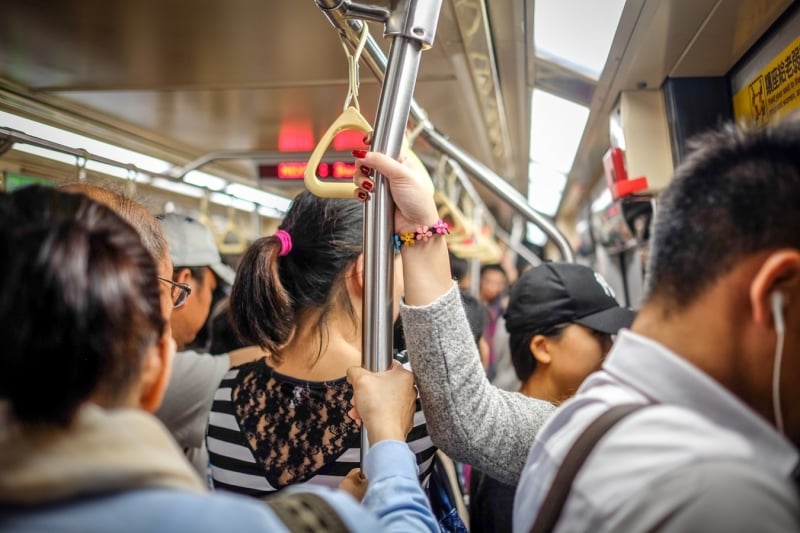
If you’re asking for directions, simply write the name of the place you want to go to and follow it up with zai na li. You can also use the phrase to ask about the whereabouts of a person. Like, my soulmate zai na li?
14. I want to go to – wo yao qu 我要去
Alternatively, you can use wo yao qu followed by the name of a place to ask for directions. However, I don’t recommend this as some people may get confused and wonder why a random stranger is coming up to them and telling them their travel plans.
15. Common places to know
Of course, knowing how to ask for directions is useless if you’re not sure how to mention the place you want to go to. Here’s a list of important common nouns to remember:
| Clinic or Hospital | zhen liao suo诊疗所 / yi yuan 医院 |
| Toilet | ce suo 厕所 |
| Train Station | huo che zhan 火车站 |
| Metro Station | jie yun zhan 捷运站 |
| Police Station | jing ju – ju is pronounced more like gee 警局 |
You don’t need to master the language
And there you have it, 15 essential phrases and words to know when travelling in Taiwan! Of course, you should be able to manage perfectly fine even without any Mandarin. But as I’ve always said, when you communicate with locals using their language, they quickly warm up to you. So, if you’ve got time before your next trip to Taiwan, try mastering these phrases!





